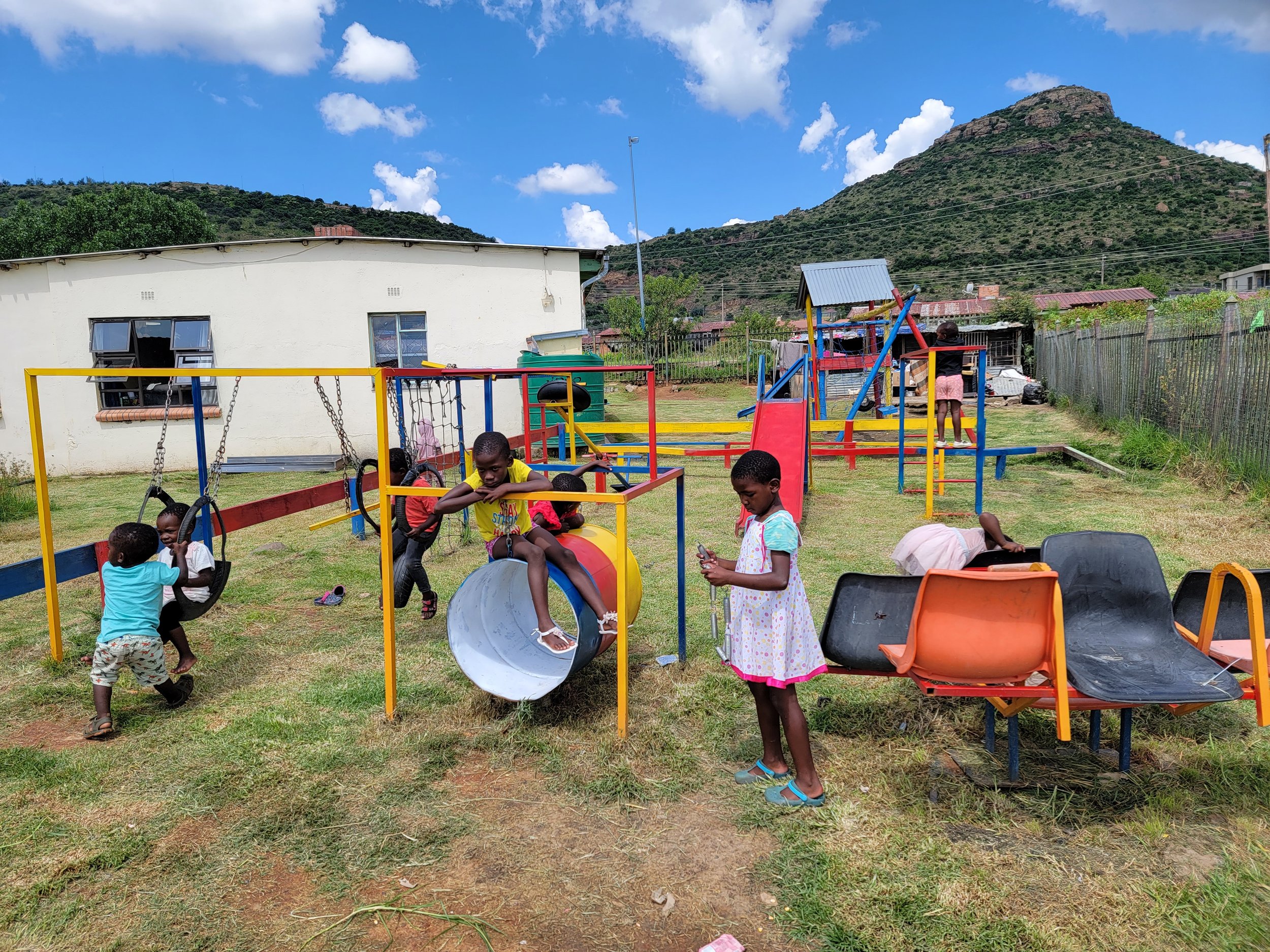Restoring Bodies & Spirits
THE MINISTRY OF SOCIAL DEVELOPMENT places children in our care. Most of the children arrive malnourished, many of them suffering from tuberculosis or other poverty-related diseases. Some have also experienced emotional and physical abuse.
Our first priority is nutrition, restoring a child’s health through fresh milk and locally sourced meats and produce. With a full-time social worker, tutors, a nurse clinician and round-the-clock caregivers, we see to each child’s schooling and emotional well-being. We bring these children back to life, in body and spirit.
Children & Chickens
We have transformed a modest three-bedroom, one-bath house into a home for 30 or more infants, children and youth. Donations of bunk beds, outdoor portable toilets and a large storage container for food, school and medical supplies have made this a livable and functioning space (even if accommodations are tight!)
Outside, next to the playground, is a chicken coop, which the children help to maintain. The hens ensure that our children have fresh eggs every day, and the upkeep of the livestock is valuable experience for a child who may later live in a rural village.
Looking to the future, we envision construction of a spacious, modern facility that will allow us to house more children and provide badly needed services such as maternal health care, parenting classes, child care training and HIV services.

Lifetime Learning
Most of our children attend primary school, which is tuition-free in Lesotho. We pay for tuition (and board, in some cases) for children in secondary schools and for children with special needs. We also help our children take school trips each year, so that they can see more of the world and be well-socialized upon graduation.
Because public funding for post-secondary education is virtually non-existent, we face the challenge of supporting our youth, who are beyond adoption age with no relatives we have been able to locate. One student completed two years of college with our support and is pursuing a nutrition degree at the university level.
As our youth grow into young adults, we prepare them to lead independent lives when they move on from our home.
Village Connections
Some children who are placed in our care reside with us for a period of months, but most remain for several years. The difference depends on the child’s nutritional needs and the availability of relatives or an adoptive family who can provide a permanent home.
In Lesotho, connections to family, and to a home village, are vital to a child’s self-identity and well-being. We delight in reuniting a child with relatives who can provide financial and emotional stability. When a family does not have the means to support the child, we still seek to nurture those important village connections.
We have located relatives for a number of our children and youth. Although these relatives cannot take full-time responsibility for the children, they gather frequently, and the children are thriving from their renewed connection to family.





